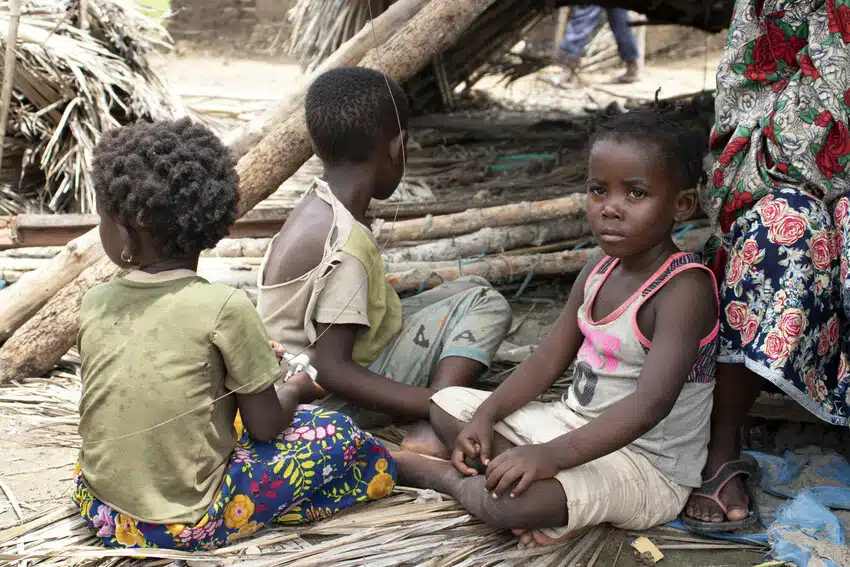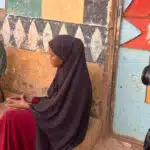Media Centre - Media release - 15 March 2023
Cyclone Freddy leaves families cut off from shelter, food and clean water

(CABO DELGADO, MOZAMBIQUE) Child rights and humanitarian organisation Plan International is extremely concerned for the safety and welfare of children and their families after Cyclone Freddy pummelled southern Africa for a second time in a month.
More than 100 people have been reported dead and scores injured after the tropical cyclone ripped through central Mozambique and Malawi on Saturday, razing buildings, damaging infrastructure and telecommunications and causing severe flooding and landslides. Thousands of people are now in urgent need of shelter, clean water and food, with children, especially girls, hardest hit.
Plan International emergency response teams are on the ground in both Mozambique and Malawi and are working urgently to assess the impacts of Cyclone Freddy, one of the longest and strongest storms on record in the southern hemisphere.
At least 22,000 people have been forced from their homes in Mozambique alone, a figure which is expected to increase sharply in the coming days as rescue teams reach more areas.
“Each time it rains, I feel like it will not stop,” said 16-year-old Lucia, who is now out of school and staying at a camp for internally displaced people in Nampula province, after first escaping the conflict in her home area, and then a previous cyclone, Cyclone Gombe. “I have never cried as hard as I did when the cyclone destroyed our home.”
Lucia is frequently upset both by her memories of the conflict, and by the howling sound of the wind and rain. “It was so violent. I sleep fearing the next one,” she added.
The Government of Malawi has declared a state of disaster as storm induced rainfall continues, pushing more families away from their homes.
Plan International was already responding in many of the affected areas after Cyclone Freddy first made landfall in February, providing critical items including blankets, clothes, jerry cans, buckets, soap and dignity kits. The NGO is currently scaling up efforts to support communities in the wake of the storm’s second landfall.
Widespread damage to public infrastructure and services – including roads, water supply systems, schools and health centres – has left many of the worst affected locations cut off as heavy rainfall continues.
“Cyclone Freddy hit Zambézia province with heavy rain and strong winds. Here in Mocuba District, where Plan International has an office, electricity poles fell, sand roads were destroyed and dragged by the power of the water, and many precarious houses destroyed and families displaced. The rains continue to fall,” says Elsa Nossomarques, a field officer for Plan International in Zambezia, Mozambique.
“The rains continue to pour and reports of landslides in villages continue. The biggest challenge now is access as most of the affected communities have now been cut off and are currently inaccessible,” adds Chris Katutu, Regional Manager for Plan International in southern Malawi.
Plan International is also concerned by the increase in cholera cases, which had been rising significantly in both countries prior to Cyclone Freddy’s second landfall, and warns that safe water supplies and sanitation facilities must be restored urgently.
Women and girls are at greatest risk when there is a shortage of safe water, sanitation and hygiene services, as they are typically responsible for collecting and managing household water supplies. A lack of water, soap, and secure changing and washing facilities also makes it difficult to manage menstrual health.
[ENDS]
For more information, images, b-roll or interviews please contact:
- Claire Knox, Plan International Australia media and ambassador manager: 0452 326 549 / [email protected]
Education Cannot Wait
An education is every child’s fundamental right. But for millions of children affected by crises across the globe that right is under serious threat. Over the past five years, we’ve seen a significant increase in the number of children who are at risk of missing out on their education because of armed conflict, forced displacement, climate induced disasters and protracted crises. In 2016, 75 million children were affected by crisis, but now that number has blown out to 222 million. Adolescent girls in conflict zones are 90 per cent more likely than their peers in non-conflict settings to be out of school.
Put simply, their education cannot wait. The power of education during crises for children, especially girls, cannot be underestimated. Beyond curriculum, schools also give children a sense of normalcy during crises, and hope for their futures. It can equip girls with the skills to lead and participate in peace building initiatives in their communities and countries, and call for the changes they want to see.
Plan International Australia is calling on the Australian Government to commit $24 million over three years to the UN’s Education Cannot Wait fund for education in emergencies and protracted crises.
Media contacts


